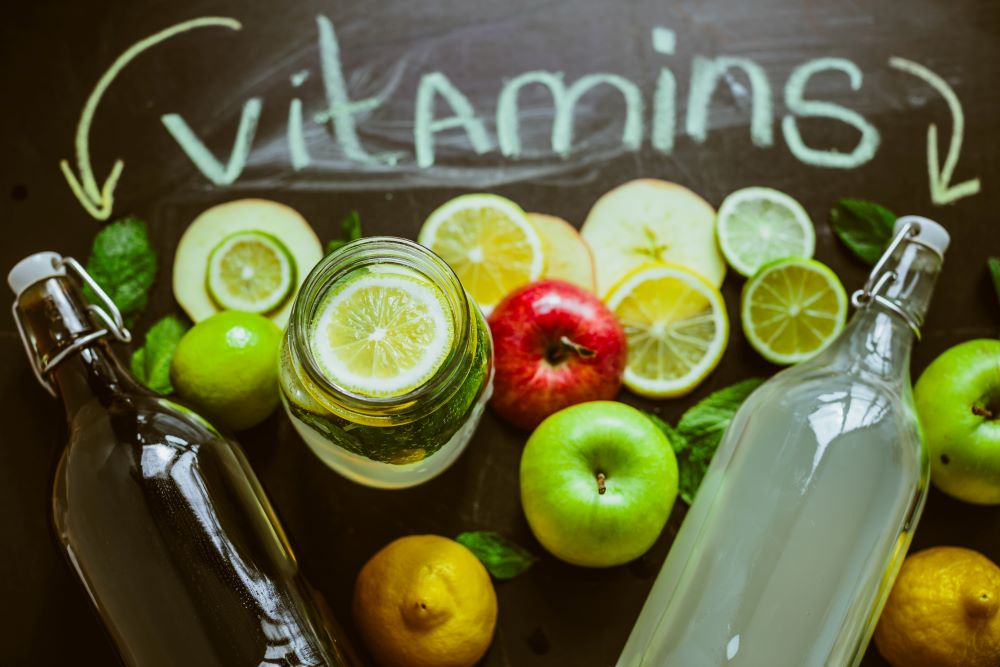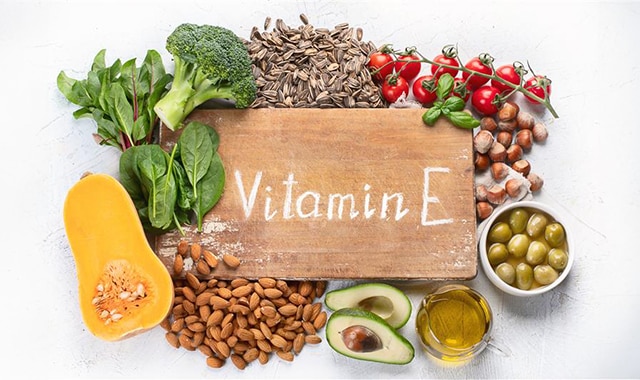Did you know that more than 90% of people globally inhale polluted air daily? With rising pollution, smoking, and respiratory illnesses, safeguarding your lungs has never been more urgent. A diet enriched with key nutrients can be a game-changer for your respiratory wellness. In this guide, we’ll explore The 8 Best Vitamins for Lungs, According to a Dietitian, their benefits, and practical tips for integrating them into your life. Whether you want to boost your lung capacity, recover faster from infections, or protect against long-term damage, this guide is your roadmap to stronger lungs.

[Source: Digit Insurance]
Why Lung Health Deserves Your Full Attention?
Your lungs deliver oxygen to every organ and eliminate carbon dioxide, a waste product. When lung function is impaired, you may experience fatigue, breathlessness, or susceptibility to infections. Over time, damage can contribute to asthma, COPD, or even lung cancer. Prioritizing lung health means maintaining energy, resilience, and overall vitality. Alongside healthy habits like exercise and avoiding smoking, focusing on the Best Vitamins for Lungs can significantly improve respiratory function. (Source)
How Vitamins Support Lung Health?
The lungs face daily exposure to pollutants, allergens, and pathogens. Nutrients like antioxidants and minerals act as protectors, helping repair tissues, neutralize free radicals, and strengthen immune defenses. The Best Vitamins for Lungs don’t just heal—they fortify your body to prevent future damage. By including these essential vitamins and minerals in your diet or through high-quality supplements, you can build a stronger respiratory system and safeguard your overall health. (Source)
1. Vitamin C: The Antioxidant Powerhouse

Vitamin C is a frontline defender against oxidative stress, one of the biggest threats to lung tissue. Constant exposure to pollution, smoke, and environmental toxins can damage lung cells over time, but Vitamin C works tirelessly to counteract this. It also boosts the immune system, helping you fight respiratory infections effectively and maintain healthy lungs. That’s why it’s consistently ranked among the Best Vitamins for Lungs.
Benefits of Vitamin C for Lungs:
-
Neutralizes Free Radicals: Pollution and smoke generate free radicals, but Vitamin C counteracts their harmful effects.
-
Strengthens Immunity: A robust immune system is essential for avoiding respiratory infections like colds and pneumonia.
-
Improves Respiratory Conditions: Research suggests Vitamin C supplementation may lessen the severity of asthma symptoms and reduce wheezing episodes.
Food Sources of Vitamin C:
-
Citrus fruits: oranges, lemons, grapefruits
-
Strawberries
-
Bell peppers
-
Broccoli
-
Brussels sprouts
(Source)
2. Vitamin D: The Sunshine Vitamin for Stronger Lungs

[Source: Curly Tales]
Vitamin D receptors are found in lung tissue, making it indispensable for healthy breathing. Beyond its role in bone health, Vitamin D has powerful anti-inflammatory and immune-boosting properties that directly influence respiratory health. Individuals with low Vitamin D levels are often more prone to respiratory infections, asthma attacks, and COPD flare-ups. Including Vitamin D in your diet ensures you’re truly focusing on the Best Vitamins for Lungs.
Benefits of Vitamin D for Lungs:
-
Reduces Respiratory Infections: Adequate Vitamin D reduces the risk of colds, flu, and pneumonia.
-
Improves Lung Function: Low Vitamin D is linked to asthma attacks and COPD flare-ups.
-
Decreases Inflammation: Its anti-inflammatory properties help soothe airways and improve airflow.
Food Sources of Vitamin D:
-
Sunlight exposure
-
Salmon
-
Mackerel
-
Fortified dairy products
-
Egg yolks
(Source)
For those who need an extra boost, Healeo’s Vitamin D3 + K2 Drops offer an effective way to maintain optimal levels of this crucial vitamin.
3. Vitamin E: The Lung Protector

[Source: Ask Nestle]
Vitamin E is a fat-soluble antioxidant that safeguards cell membranes throughout the body, especially the delicate tissues of your lungs. Every breath you take exposes your lungs to environmental toxins such as smoke, dust, and industrial pollutants that can create oxidative stress. Vitamin E helps neutralize these free radicals, maintaining the structural integrity of lung tissue and supporting immune responses. A deficiency in Vitamin E can compromise lung elasticity and make airways more vulnerable to inflammation and irritation. This is why Vitamin E is also considered one of the Best Vitamins for Lungs.
Benefits of Vitamin E for Lungs:
-
Shields Against Oxidative Stress: Neutralizes free radicals generated by pollution and cigarette smoke before they can damage lung cells.
-
Improves Lung Performance: Higher Vitamin E levels are associated with better lung capacity and peak airflow measurements.
-
Reduces Inflammatory Responses: Helps calm inflamed airways, which is beneficial for asthma and COPD patients.
-
Supports Immune Health: Enhances the ability of immune cells to fight respiratory pathogens.
-
Aids in Tissue Repair: Promotes recovery of lung tissue after exposure to environmental irritants or illness.
Food Sources of Vitamin E:
-
Nuts: almonds, hazelnuts, peanuts
-
Seeds: sunflower, pumpkin
-
Leafy greens: spinach, Swiss chard, kale
-
Plant oils: sunflower oil, safflower oil, olive oil
-
Avocados
(Source)
4. Vitamin A: The Immune Booster for Respiratory Defense

[Source: The Quint]
Vitamin A is a fat-soluble nutrient that plays a crucial role in maintaining the mucous membranes lining your respiratory tract. These membranes form the first physical barrier between your lungs and invading pathogens or irritants. Adequate Vitamin A intake ensures your airways remain hydrated and resilient, reducing the risk of infection and inflammation. Beyond its role in barrier defense, Vitamin A regulates immune cell activity and supports lung development, making it essential for both preventative care and recovery. That’s why Vitamin A is consistently included when discussing the Best Vitamins for Lungs.
Benefits of Vitamin A for Lungs:
-
Maintains Mucous Membranes: Keeps the airway lining moist and strong, preventing bacteria and viruses from penetrating.
-
Boosts Immune Response: Supports white blood cell production to effectively combat respiratory infections.
-
Supports Tissue Growth and Repair: Helps regenerate lung tissues damaged by pollution or illness.
-
May Reduce Asthma Severity: By lowering airway inflammation and improving lung elasticity.
-
Enhances Antioxidant Defenses: Works synergistically with other vitamins to reduce oxidative stress.
Food Sources of Vitamin A:
-
Carrots and sweet potatoes
-
Dark leafy greens: kale, spinach, collard greens
-
Red bell peppers
-
Liver (beef or chicken)
-
Butternut squash
(Source)
5. Vitamin B6: The Respiratory Regulator

[Source: Supply6]
Vitamin B6 (pyridoxine) is a water-soluble vitamin that influences protein metabolism, neurotransmitter synthesis, and hemoglobin production. Its role in oxygen transport and inflammation regulation makes it vital for lung health. B6 also aids in the creation of neurotransmitters like serotonin and dopamine, which indirectly influence respiratory rhythm and stress responses. Inadequate B6 can contribute to weaker immune function, making the lungs more susceptible to infections. This makes B6 one of the Best Vitamins for Lungs in terms of long-term resilience.
Benefits of Vitamin B6 for Lungs:
-
Supports Immune Health: Essential for producing antibodies that help the body fight respiratory infections.
-
Enhances Oxygen Delivery: Facilitates hemoglobin production, improving oxygen transport from lungs to tissues.
-
Reduces Lung Inflammation: Helps regulate inflammatory processes within lung tissues, improving airflow and reducing irritation.
-
May Benefit Chronic Conditions: Linked to better outcomes in asthma and COPD by reducing flare-ups and improving breathing comfort.
-
Improves Energy Metabolism: Supports efficient energy use during physical activity, which strengthens respiratory muscles.
Food Sources of Vitamin B6:
-
Poultry: chicken, turkey
-
Fish: salmon, tuna
-
Legumes: chickpeas, lentils
-
Starchy vegetables: potatoes, sweet potatoes
-
Bananas and fortified cereals
(Source)
6. Vitamin B12: The Oxygen Optimizer

[Soure: GHHS Healthcare]
Vitamin B12 is a water-soluble vitamin essential for producing red blood cells, which transport oxygen throughout the body, including to the lungs. Adequate B12 levels are vital for preventing fatigue, breathlessness, and nerve damage that can impair respiratory function. This vitamin also plays a key role in maintaining the health of the nervous system, which regulates your breathing rhythm. If you’re serious about the Best Vitamins for Lungs, B12 deserves a spot at the top.
Benefits of Vitamin B12 for Lungs:
-
Enhances Oxygen Transport: Crucial for hemoglobin production and efficient breathing.
-
Prevents Breathlessness: Deficiency can lead to fatigue and shortness of breath due to impaired oxygen delivery.
-
Supports Nervous System Health: Vital for nerve function controlling breathing and muscle coordination.
-
Improves Recovery: Can speed up healing and energy restoration after respiratory illness.
-
Boosts Immune Response: Supports white blood cell activity, improving your body’s defense against respiratory pathogens.
Food Sources of Vitamin B12:
-
Meat: beef, lamb
-
Fish and shellfish: salmon, tuna, clams
-
Dairy products: milk, cheese, yogurt
-
Eggs
-
Fortified plant-based milks and cereals
(Source)
7. Magnesium: The Airway Muscle Relaxer

[Source: Nature Made]
Magnesium is an essential mineral involved in over 300 biochemical processes in the body, including muscle function, nerve signaling, and energy production. For the lungs, magnesium is particularly important as it relaxes the smooth muscles lining the airways, allowing for better airflow. It also helps regulate inflammation, which is critical for conditions like asthma or bronchitis. Alongside the key vitamins above, magnesium is frequently highlighted when experts discuss the Best Vitamins for Lungs and overall respiratory health.
Benefits of Magnesium for Lungs:
-
Relaxes Airways: Eases breathing during bronchospasms or asthma attacks.
-
Reduces Inflammation: Helps decrease swelling in lung tissues, improving airflow and comfort.
-
Supports Lung Capacity: Higher magnesium intake is linked with stronger respiratory muscles and greater lung function.
-
Improves Oxygen Utilization: Enhances energy production and oxygen use during physical activity.
-
Aids in Stress Reduction: Magnesium’s calming effect on the nervous system can prevent stress-induced breathing difficulties.
Food Sources of Magnesium:
-
Leafy green vegetables: spinach, kale
-
Nuts and seeds: almonds, pumpkin seeds, sunflower seeds
-
Whole grains: quinoa, brown rice, oats
-
Legumes: lentils, chickpeas, black beans
-
Avocados
(Source)
8. Zinc: The Immune Defender

[Source: Poison Control]
Zinc is a trace mineral that plays a critical role in immune regulation and lung repair. It acts as a catalyst for numerous enzymes involved in cell growth and tissue healing. Zinc deficiency can weaken the body’s ability to fight respiratory infections and delay the repair of damaged lung tissues. Its anti-inflammatory properties make it a must-have mineral for those looking to protect and strengthen their respiratory system. That’s why it rounds out the list of the Best Vitamins for Lungs and immune protection.
Benefits of Zinc for Lungs:
-
Strengthens Immune Response: Protects lungs from invading bacteria and viruses.
-
Reduces Lung Inflammation: Soothes irritated respiratory tissues and prevents excessive swelling.
-
Speeds Healing: Shortens the duration of colds and respiratory infections, supporting faster recovery.
-
Supports Lung Tissue Regeneration: Encourages repair of damaged cells, maintaining healthy lung function.
-
Improves Resistance to Pollutants: Enhances the lungs’ ability to withstand environmental stressors.
Food Sources of Zinc:
-
Meat: beef, pork
-
Shellfish: oysters, crab
-
Legumes: chickpeas, lentils, beans
-
Seeds: pumpkin, sesame
-
Nuts: cashews, almonds
(Source)
Know more about food sources that help clean your lungs naturally and support your lung health in return!
Things to Remember About Lung Health
Maintaining healthy lungs is about more than just adding vitamins—it’s about adopting a holistic approach:
-
Consistency Matters: Vitamins work best over time, not overnight. Include these nutrients in your daily routine.
-
Pair Nutrition with Lifestyle: Regular exercise, clean air practices (like air purifiers), and avoiding smoking are equally essential.
-
Use Supplements Wisely: If your diet lacks certain vitamins, supplements like Healeo’s Lung Forte can help bridge the gap and provide some of the Best Vitamins for Lungs in one formula.
-
Stay Hydrated: Proper hydration keeps mucous membranes moist, improving lung defense.
-
Regular Check-Ups: Consult a healthcare professional if you have chronic respiratory issues or suspect nutrient deficiencies. (Source)

How Healeo’s Lung Forte and Glutathione Forte Support Your Vitamin Goals for Lungs
Healeo’s Lung Forte is formulated to help you meet your vitamin intake goals for lungs by providing effective doses of Vitamins C, A, and E. These vitamins work together to reduce oxidative stress, support lung detoxification, and strengthen your immune defenses, making it easier for your body to utilize these nutrients efficiently.
Glutathione Forte complements this by supplying 99% pure glutathione, which naturally supports antioxidant activity in the body. Since it also contains Vitamins C and E, it enhances the absorption and effectiveness of these key nutrients, helping your body get the most out of your vitamins for lungs. Together, these products support your overall respiratory health, boost energy, and even contribute to glowing skin, all while simplifying your daily wellness routine.

Conclusion: Prioritizing Lung Health with the Right Vitamins
Maintaining lung health is essential for overall well-being, and incorporating these vitamins into your diet can provide significant benefits for your respiratory system. Whether you’re aiming to improve lung function, reduce the risk of respiratory infections, or manage chronic lung conditions, a diet rich in these key vitamins can make a substantial difference. Consider incorporating these vitamins through food sources, and if necessary, supplementing with high-quality products like those offered by Healeo Nutrition.
Remember, a healthy diet is just one component of lung health. Regular exercise, avoiding smoking, and reducing exposure to environmental pollutants are also crucial for maintaining optimal respiratory function. By taking a proactive approach to your lung health, you can enjoy better overall health and well-being.
FAQs:
1. What are the Best Vitamins for Lungs overall?
The best include Vitamins C, D, E, A, B6, B12, Magnesium, and Zinc. These nutrients improve lung function, repair tissue, and enhance immunity.
2. Can vitamins really improve lung function?
Yes. Antioxidants like Vitamin C and E reduce oxidative damage, while Vitamin D and Magnesium support airway health and oxygen flow.
3. How does Vitamin C protect lung health?
C neutralizes free radicals, reduces inflammation, and strengthens immunity—key for preventing respiratory infections.
4. Is Vitamin D deficiency linked to respiratory illnesses?
Absolutely. Low Vitamin D increases risks of asthma attacks, COPD flare-ups, and infections like pneumonia.
5. What foods are richest in Vitamin E for lung protection?
Almonds, sunflower seeds, spinach, avocados, and olive oil are excellent Vitamin E sources.
6. Are magnesium supplements safe for asthma patients?
Yes, under medical guidance. Magnesium relaxes airway muscles and may ease asthma symptoms.
7. Which vitamins are essential for smokers’ lung repair?
Smokers benefit from Vitamins C and E, which protect against smoke-induced oxidative stress, and Vitamin A to repair airway linings.
8. How do Lung Forte and Glutathione Forte support respiratory wellness?
Lung Forte combines essential vitamins and herbal extracts to reduce inflammation, while Glutathione Forte enhances detoxification and skin health.
9. Can zinc help prevent chronic lung infections?
Yes, zinc strengthens immune defenses and may reduce the frequency and severity of infections.
10. What lifestyle habits complement taking the Best Vitamins for Lungs?
Avoid smoking, practice deep breathing exercises, stay active, eat antioxidant-rich foods, and minimize exposure to air pollutants.



